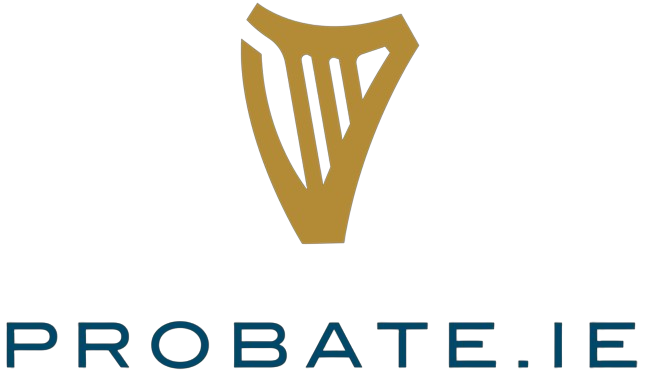Here you will find Frequently Asked Questions about making a will
Making a Will FAQs
Why should you make a will?+
You are married or a party to a Civil Partnership and have children.
You have children who are under 18 years of age and need to appoint Guardians and Trustees.
You live with your partner but you are not married (co-habiting for any length at all).
A will is the only way to ensure that whatever you leave is distributed with the minimum delay.
You are a homeowner.
You set up your own business or firm
You are getting married or entering a Civil Partnership.
You are getting divorced or separated or dissolution of a Civil Partnership.
You wish to leave some money/assets to your relatives.
You wish to leave some money/assets to someone with disabilities.
You want to give some money/assets to a charity or a special cause.
You want to reduce the tax liability on your estate allowing you to leave more to your loved ones and favourite causes.
Can I make arrangements to make sure my will is carried out?+
Everybody should consider their final wishes at some stage. Making a will ensures that your estate is administered and distributed according to your wishes. It is also a very sensible decision to execute an Enduring Power of Attorney. This will ensure that in the event of you becoming incapable of dealing with your affairs your welfare and assets can be dealt with by your loved ones as per your wishes in your Enduring Power of Attorney (EPA).
In the event that an individual becomes incapacitated for whatever reason and no EPA had been created then it would be necessary for an application to be made to the President of the High Court to declare the individual a Ward of Court. This is a complex and costly procedure and can be easily avoided through execution of EPA.
Is it possible to make a will yourself without a solicitor?+
Yes, it is possible but inadvisable to make a Will yourself.
In order for a Will to be valid it must comply with many requirements as under the Succession Act 1965 such as;
- The testator (person making the will) must be 18 years or over.
- The testator must be of sound disposing mind at the time the will is executed.
- The will must be signed at the foot or end of the will by the testator.
- There must be two witnesses to the testator’s signature and each witness must attest the will by his signature.
- If a direction or disposition is inserted into the Will after the testator has executed same it shall be invalid.
- A witness to a testator’s signature in a will cannot benefit under the will of a testator.
There are also numerous other necessary elements to drafting particular clauses in Wills which if completed incorrectly can result in Partial Intestacy (whereby only part of the will can stand) and the part that fails will result in that part of the estate passing under the Rules of Intestacy. It is for these reasons that legal advice is so important when a person decides to complete their will.
We strongly advise against making a Will without legal advice and assistance. Even if the Will is valid, the process of obtaining a Grant of Probate can be over complicated due to the numerous queries which will arise in the Probate Office regarding DIY Wills. There are simply too many mistakes that can be made in Wills.
What should you do if you have assets abroad?+
It is important that anybody who has property or assets abroad makes a Will in the particular country or countries in which the property in situated. It is not enough to have a Will made in Ireland as this may not be enforceable in the foreign country in which your property in situated.
Many countries have different legal systems and laws to Ireland and you should obtain legal advice from a solicitor or lawyer in the particular country in which you hold the foreign property in order to ensure that your wishes are carried out.
What is Capital Acquisitions Tax (CAT)?+
Capital Acquisitions Tax (CAT) comprises of Gift Tax, Inheritance Tax and Discretionary Trust Tax. The tax is charged on the taxable values of the gift or inheritance.
CAT works by the application of a tax free allowance called a “Threshold”. Essentially, an individual has three thresholds and the inheritance/ gift will be examined using the appropriate threshold. Each threshold relates to the relationship between the deceased/ person giving the gift and the individual inheriting/ benefiting from the gift. The current thresholds are as follows;
Group A – Son/Daughter – €310,000
Group B – Parent/Brother/Sister/Niece/Nephew/Grandchild – €32,500
Group C – All other relationships not covered above – €16,250
These thresholds or tax free allowances apply once only from 05/12/1991 to date. Thus, the threshold can be used for multiple inheritances within one group and indeed can be exhausted by one inheritance/gift leaving no threshold for the next inheritance/gift.*In certain circumstances, a parent taking an inheritance from a child can qualify for a Group (A) threshold
When an inheritance or gift exceeds the relevant tax free threshold, tax at a rate of 33% applies on balance of the gift or inheritance.
There are exemptions and reliefs which can be availed of to minimize CAT liability such as:
- Spouse to Spouse and Civil Partner to Civil Partner exemption
- Surviving Spouse Relief
- Small Gift Tax exemption of €3,000
- Agricultural Relief
- Business Relief
- Dwelling House Relief
- Child to parent Relief and Exemption
- Favourite Niece/ Nephew relief
It is extremely important to seek legal and financial advice on the possible tax implications of any gift or inheritance as penalties can apply for late payment along with interest.
How is Capital Acquisitions Tax calculated?+
Capital Acquisitions Tax is chargeable on the balance of the gift or inheritance after the relevant threshold or tax free allowance has been deducted. Any expenses incurred can be deducted.
Should I include digital assets (social media accounts, online content etc.) in my will?+
Yes, you can appoint a person in your will to deal with your digital assets and you can of course leave these assets to someone in your will. The account details can be kept confidentially with your will for safekeeping.
Can I change my will?+
Yes. You can change your will as often as you wish. A will is not effective until death and therefore you can amend it as often as you wish. You should always review your will regularly, at a minimum of every two to three years.
How do I get a copy of a will?+
A will is not a document of public record until a Grant of Probate is granted. Once a grant has issued anyone can contact the Probate Office and take up a copy of the will.
How will my family know where my will is kept?+
It is not advisable to reveal the contents of your will as you may wish to change it at a later stage. It is however very important to tell your executors where your will is kept. We will provide you with an Executor Notification card which you can give to your executors if you wish. In addition, we will provide you with a will card which you can keep in your wallet advising where your will is kept.
Is it necessary to have a formal will reading?+
No. There is no requirement for a formal will reading. The executor is the person entitled to see the will once a person has passed away. The executor usually distributes an extract or copy of the will to all beneficiaries. Most executors prefer to give copies of the will to family rather than having a formal will reading.
How much does it cost to make a will?+
The standard cost to make a will is €150 plus VAT. The majority of wills fall into this category. This is money well spent for the peace of mind that having a comprehensive and detailed will gives you.
How do I make sure my will is not contested?+
The best way to prevent a contest to your will is to make sure you have your will drafted and executed with an experienced solicitor. This will ensure that any potential areas of conflict or risk are dealt with and your wishes as set out in your will are protected.




